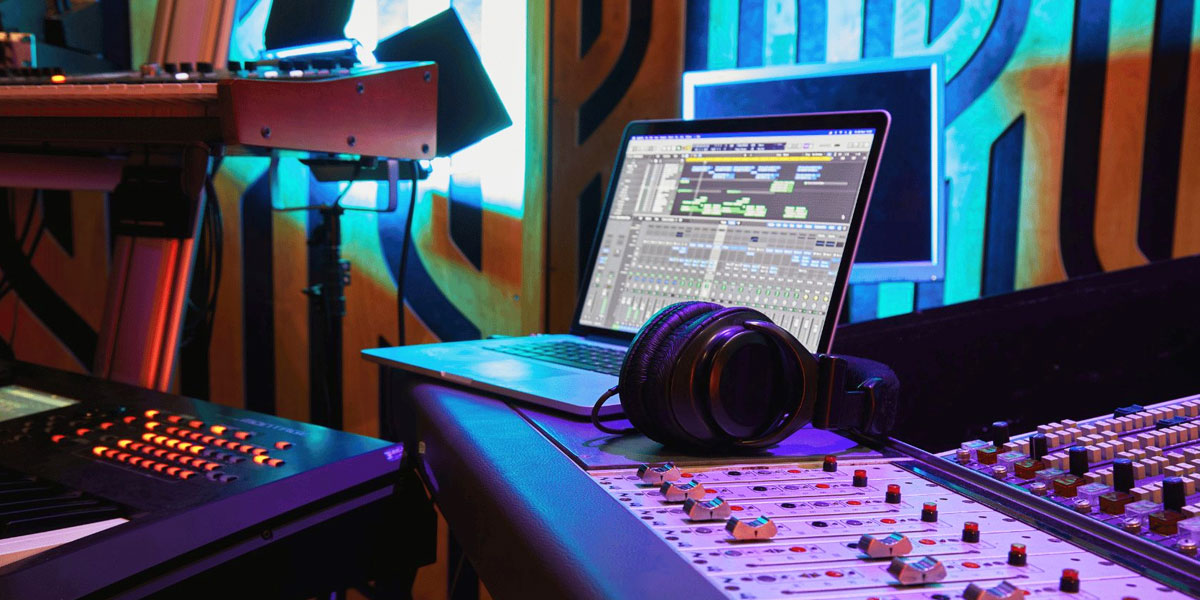Have you ever wondered how machines could be making music? It’s not science fiction anymore; it’s a real thing. AI in music production has made its mark in the industry. Given the importance and relevance of the topic, in this article, I’ll talk about how you can use artificial intelligence in music production today and share my thoughts on how this technology will help artists tomorrow.
AI in music production: Enhancing human creativity or replacing It?
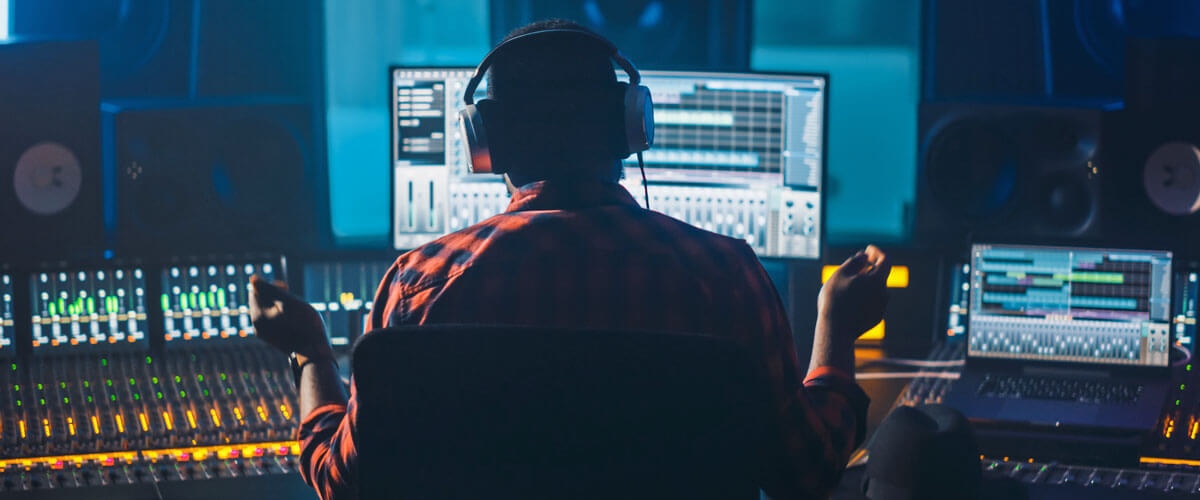
Let’s start talking about the rockstar in town: Artificial Intelligence (AI) in the music industry. Is it our creative partner or a potential rival?
- Auto-magic: AI is your musical assistant. It takes care of boring, repetitive tasks like tuning instruments and drumming up beats, leaving you more time for the more creative tasks.
- Pitch-perfect: With new technologies, you get consistency like never before. It’s the maestro that ensures your tunes are pitch-perfect every single time.
- Time saver, money maker: Artificial intelligence can whip up a melody faster than you can say “hit single.” That means less time spent, which, in the music world, is equal to saving some serious cash.
- Compose with a co-pilot: Think of this unique technology as your personal muse, throwing in chord ideas and catchy hooks to fuel your inspiration.
But wait, artificial intelligence has its quirks. Sometimes, it hits all the right notes but misses the emotional punch. It’s like a robot trying to understand a love song – technically sound but lacking soul. Also, it can get a bit predictable. It churns out tunes like a factory, often missing the quirky, unique charm that only humans can deliver.
The current state of AI in music production
Picture this: a world where computers compose concertos and algorithms arrange anthems. Welcome to the new AI-infused reality! So, here are some artificial intelligence tools that help with it all:
| AI Music Tool | The Musical Magic |
|---|---|
| Voicify | You won’t believe it, but this tech genius doesn’t require any sheet music! Voicify takes your voice and transforms it into a full-on choir of AI-generated singing voices. |
| Musiio | This software allows you to significantly reduce the time spent searching for tracks. The Musiio system, powered by artificial intelligence, will find the right tunes for you based on the criteria you set. |
| WavTool | WavTool basically kicks out all the annoying background noises. |
| FineShare Voice Changer | FineShare is this amazing tool that lets you play around with your voice and give it a cool vibe from your favorite artists. |
| AIVA | AIVA can whip up original tunes in all sorts of styles, from classical symphonies to today’s catchy melodies. |
So, AI keeps improving and modernizing, and its role in boosting our creative juices is shining brighter than ever.
I also made a list of artificial intelligence services you can use to create music:
- AI celebrity voice generator.
- AI voice generator characters.
- President AI voice generator.
- AI rapper voice generator.
Composing with Artificial Intelligence
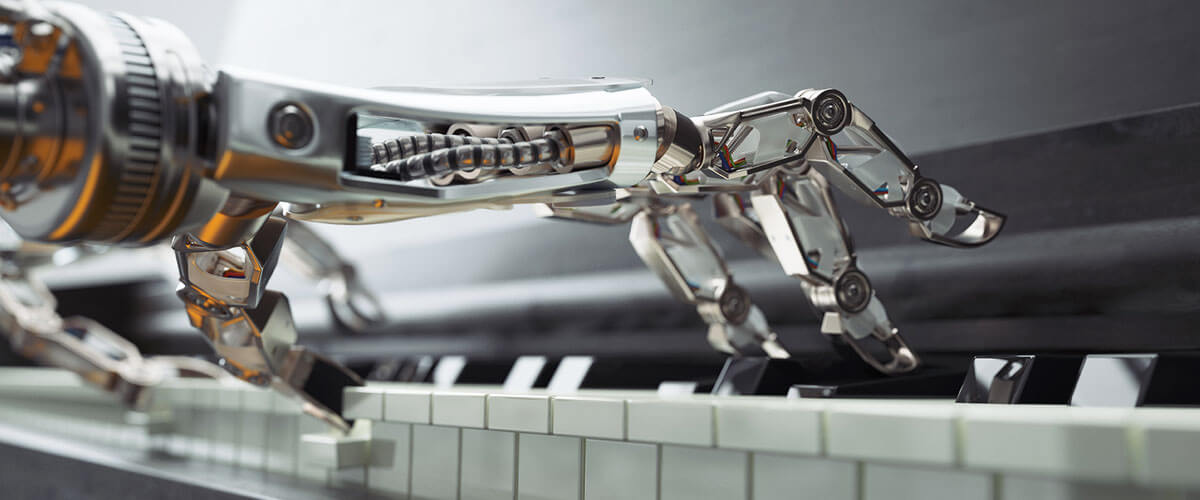
AI has really jazzed up music creation. And I’m not just talking about doing things automatically, I’m actually talking about enhancing our creativity.
This technology thoroughly examines music, analyzing numerous songs to identify the patterns and emotions that resonate with listeners in legendary tunes and contemporary hits.
AI’s cool trick is that it can copy the unique styles of famous musicians. So, it’s giving musicians a chance to play around with new sounds and genres they might never try otherwise.
Do you know what I find really cool about this tech? It can actually make completely new music, like, from nothing! These algorithms are super creative, helping us, musicians, come up with fresh tunes in different styles and moods.
So, I have to highlight: AI isn’t here to take over from humans; it’s here to be their creative buddy.
The role of AI in the mastering process of music production
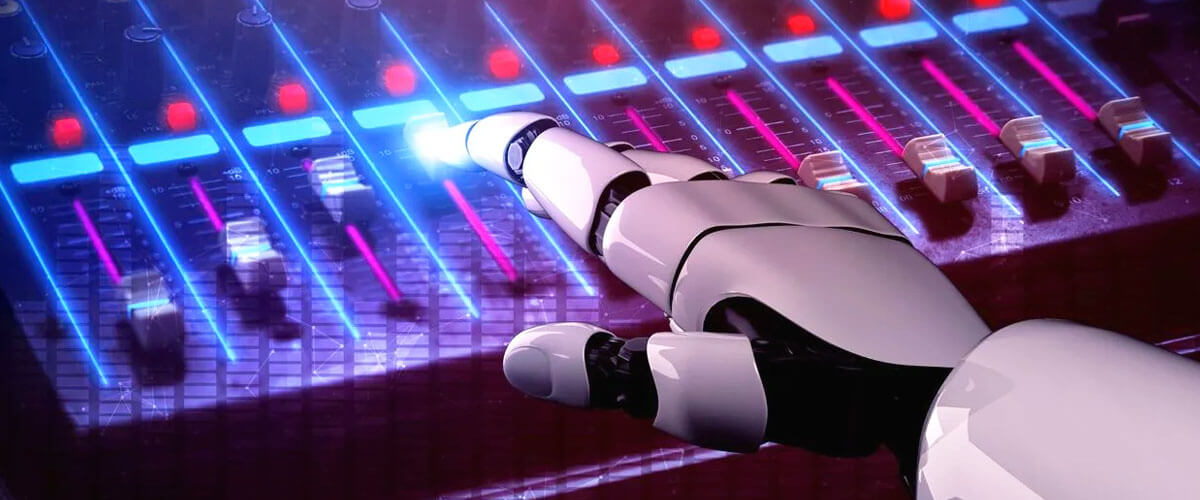
Mastering, the final and crucial step in music production, demands a skilled hand and a keen ear. To get the perfect final mix, you have to solve such complex tasks as balancing levels, improving sound quality, and suppressing noise. Usually, I spend many hours of hard work on these tasks. But that’s where artificial intelligence comes to the rescue.
- Automated mastering: AI-powered mastering tools excel in automating this complex process. They analyze audio tracks meticulously and apply tailored processing to achieve an impeccable final mix.
- Time-saving: Take it from me: mastering is an extremely labor-intensive process, often requiring several iterations to achieve the desired sound. This technology accelerates this process by swiftly recognizing and correcting audio imperfections.
- Cost-effective solutions: Traditionally, hiring a skilled mastering engineer could be a substantial expense. AI-powered mastering tools offer a cost-effective alternative, especially if you are an independent artist or producer with a limited budget.
Let me reiterate that mastering is quite an intricate art form. While AI can handle a lot of stuff amazingly well, it might stumble a bit when it comes to those super subtle details that human mastering engineers have honed over years of hard work and experience.
In essence, the question of “why is mastering so difficult for AI?” arises due to this technology’s ongoing challenges in replicating the nuanced artistic decisions, emotional depth, and musical intuition that human mastering engineers possess.
The future of AI in music production
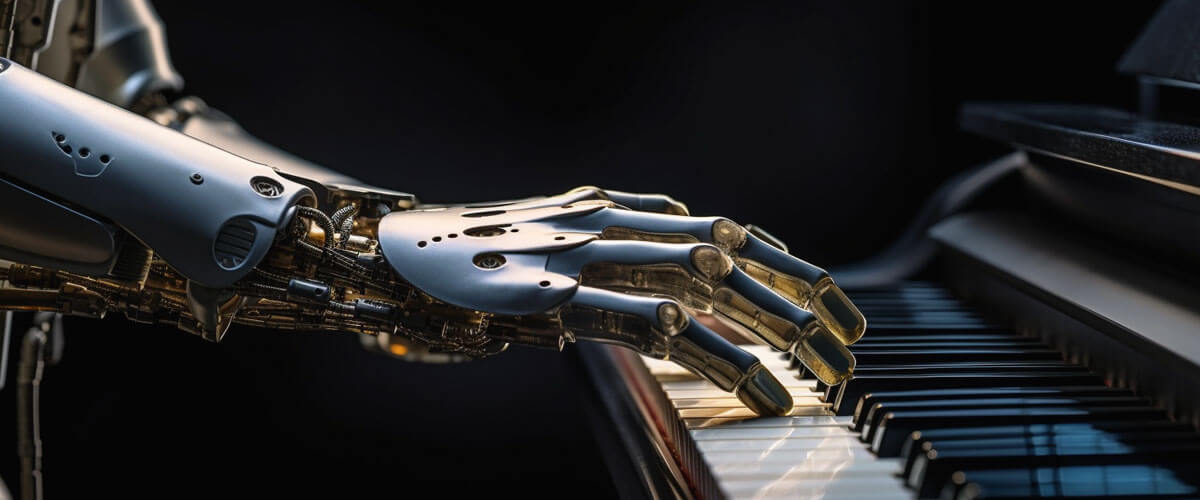
Looking into the future, AI in music is like a wild adventure with no limits. It’s all set to change music in so many cool ways. Now, I am going to tell you more details about it!
Systems driven by artificial intelligence are capable of creating new and unprecedented sounds. They are able to analyze vast amounts of data and learn from existing musical compositions to generate entirely new listening experiences. I believe this will broaden the horizons of musical creativity, and I look forward to the innovations.
The best thing about this tech is how it can blend different music genres. It’s like creating fresh music styles that mix old, new, and cultures. Can’t wait to see where this takes the music world!
I use AI to make music, so it’s a valuable assistant to me. It assists me in composing by suggesting harmonies, chord progressions, or instrument arrangements. It allows me to create unique compositions quickly. Of course, I refine them personally, but it gives me inspiration and fresh ideas.
The analytical abilities of artificial intelligence extend to analyzing existing musical compositions, unraveling complex patterns, and identifying the reasons why certain works resonate with listeners. This is beyond the capabilities of the human brain.
Conclusion
So, here’s the scoop: AI has done wonders in music production, helping with tasks, saving time, and being wallet-friendly. But sometimes, AI’s skills fall short. This is often the case when it comes to the intricacies of music mastering and the soulful depths of human music.
Now, let me gaze into the crystal ball! I think the future of artificial intelligence in music looks exciting. It will bring many benefits: unique sounds, new musical styles, and creative support for musicians. However, I truly believe that artificial intelligence will not replace humans. I prefer to think of it as an assistant that will work with artists to shape the musical landscape.

